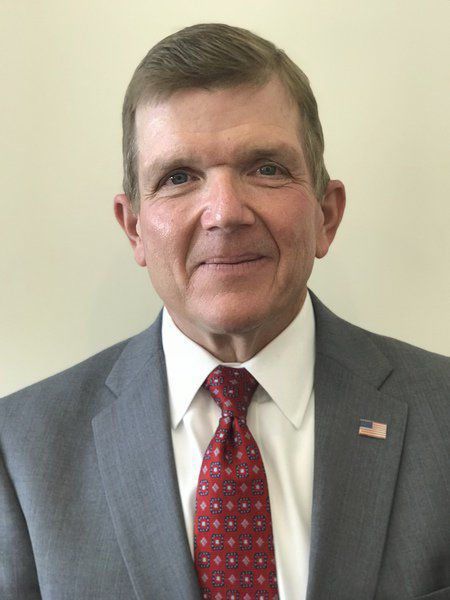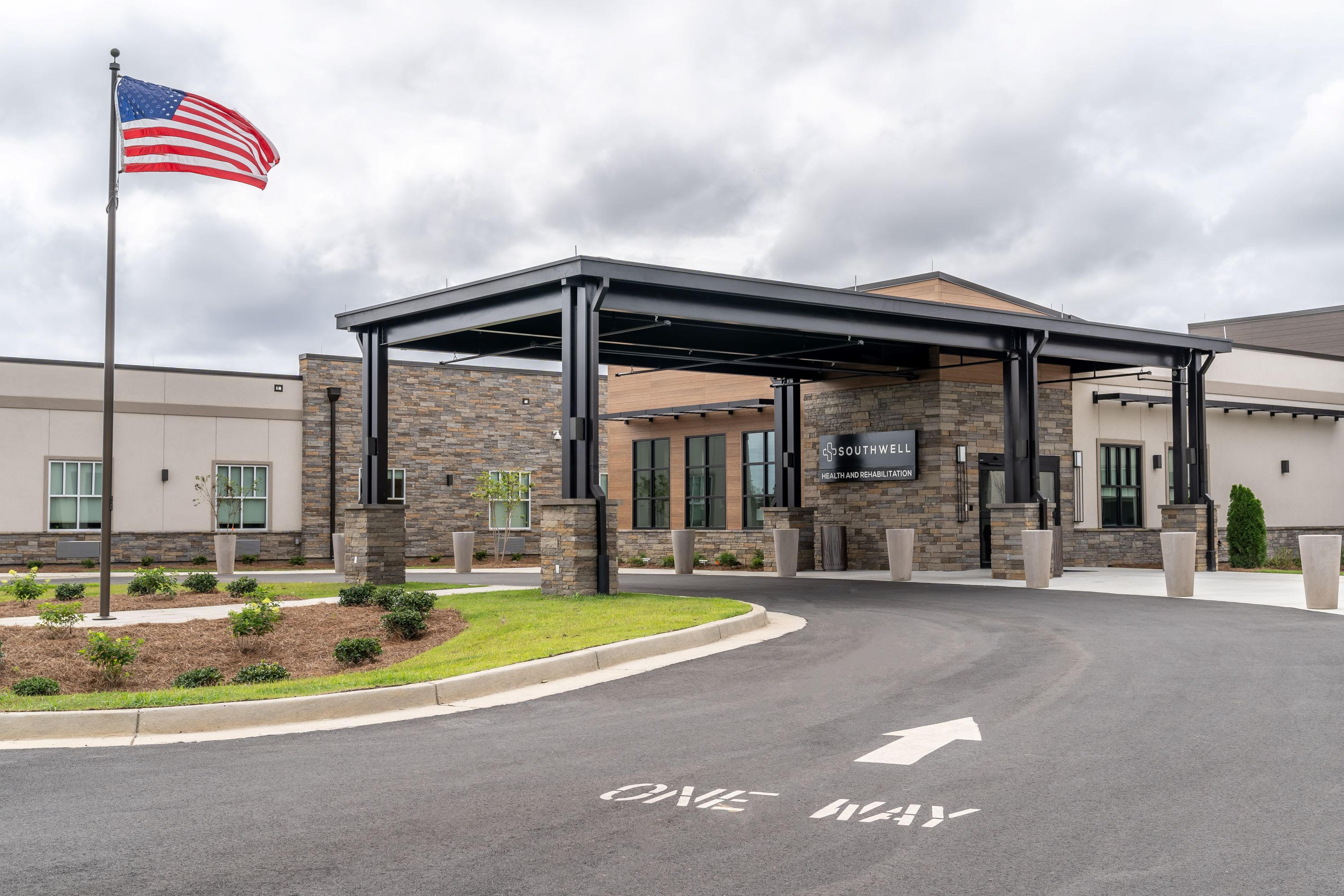Domestic Violence: Facing the hidden epidemic
Published 4:00 am Sunday, March 8, 2020

- District Attorney Brad Shealy
VALDOSTA – Every minute, approximately 20 people become a victim of rape, physical violence or stalking by an intimate partner in the United States.
One in four women and one in seven men age 18 and older have been the victim of severe physical violence by an intimate partner.
Trending
These statistics from the National Coalition Against Domestic Violence are staggering and would possibly skyrocket if the unreported cases came to light.
In the Sunlight Project areas of Valdosta, Moultrie, Milledgeville, Tifton, Dalton and Thomasville, law enforcement and safe havens agree this is an issue that knows no race, income, or gender and needs immediate attention.
Pressing Charges
Southern District Attorney Brad Shealy has had a number of domestic violence cases come across his desk during his 32-year career but it wasn’t until the mid to late 1990s that he began seeing a real change.
“The police officers used to go knock on the door and the woman would be bleeding but tell the police nothing was wrong and they would leave,” Shealy said.
Those days are gone as officers act as mediators and, hopefully, identify the aggressor, he said.
Trending
However, identifying the attacker doesn’t always mean justice will be served.
Shealy said many partners drop charges out of fear, devotion to their spouse, lack of financial stability and various other reasons, which has led to fatalities.
Shealy recalls a case when a man was sent to the hospital with a punctured lung and refused to press charges against his attacker: his wife.
A couple months later, the man stabbed his wife in front of their children.
Shealy often wonders how this situation would have played out if the man had just pressed charges. Instead, the couple let tempers continue to run high without help, resulting in an unnecessary death.
“We don’t know which cases could be that way,” Shealy said. “That’s why we take every one of them and work them until the end. It’s difficult but we take every case seriously as if it could escalate.”
Pending the severity of the case, aggressors can be sentenced to counseling, probation or serve jail time. Additional misdemeanor charges of third-degree cruelty to children can be added if a child is present during the altercation and many aggressors are served with protective orders. Any violation could send the aggressor to jail.
“A law was passed that, if you have a domestic violence battery charge and years later you hit another person, then that misdemeanor can turn into a felony,” Shealy said.
Changes in the Law
On June 8, 1991, Capt. Raymond Merritt Sr. of the Tift County Sheriff’s Department responded to a domestic violence call during a weekend when he’d agreed to fill in for another deputy.
He never returned home.
Upon arriving at the call, Merritt was shot by the aggressor. The man pleaded guilty to murder and later died in prison.
Now, law enforcement ensures every call of this nature has at least two officers present.
Capt. Steve Hyman with the Tifton Police Department said officers double up on the calls not only to separate the parties and get each side of the story but to watch each other’s backs due to the emotional and chaotic nature of the situations.
“I’ve been in situations where we had an aggressor and when we go to arrest them, they start fighting,” Hyman said. “Then I’ve had the victim see we’re arresting their spouse or boyfriend and they jump on me to try to help them out.”
Lt. Tim Watkins, Thomas County Sheriff’s Office chief investigator, said responding to domestic violence calls is always dangerous.
In 2019, the Thomasville Police Department responded to 392 domestic violence calls, which was lower than the 505 calls from the year before. So far for 2020, there have been 59 calls. Thomas County Sheriff’s Office handled 161 calls in 2019, just higher than the previous year’s 112. For 2020, they have handled 15 calls.
“You’re entering into a situation where there is the possibility of firearms, knives and other weapons being available,” he said. “The suspect in the crime has the home-field advantage. He or she knows the home layout. Passions are very high in domestic situations. The victim may turn on law enforcement and help the suspect attack the officer.”
The Valdosta Police Department handled 320 domestic cases without weapons, 30 with injury and 43 with weapons in 2019.
Sgt. Chris Crews with the Valdosta Police Department stressed recidivism is high in these cases and they deal with the same individuals multiple times.
He added no officer arrives on scene and just assumes the man is the aggressor. Officers undergo extensive training on how to handle these situations.
“We don’t go in saying ‘We are going to arrest him,’” Crews said. “When we come to a scene, we don’t automatically say who is going to jail.”
While it certainly can happen to men, Crews personally feels men are less likely to call and report an incident.
Unfortunately, children are occasionally caught in the crossfire of these heated arguments and can sometimes be the only witnesses to what has taken place.
In these situations, Crews said children are taken to the Children’s Advocacy Center to be interviewed about what they’ve seen.
Lt. Randy Stevens of the Colquitt County Sheriff’s Office said the biggest issue his department faces is what the children see and think.
“They don’t know what’s going on. All they know is mommy and daddy are fighting and if it gets violent, somebody ends up going to jail,” Stevens said. “Naturally, law enforcement turns into the bad guys because we’re having to take somebody to jail. They don’t understand why but it’s just something we have to do. We got to try to protect the citizens.”
Stevens said law enforcement isn’t always the villain to the children: if they know what’s going on, they might be the ones calling 911.
“Why not just leave?”
Katora Printup, executive director of the Northwest Georgia Family Crisis Center, said fear keeps many victims of domestic abuse from leaving their partners; fear not only of the partner retaliating but also the fear that “I can’t make it.”
“The abuser has controlled them so long. They feel that they have to depend on him or her,” she said. “Statistics say it takes a women seven times to really say ‘Hey, I’m through with this.’ So, when they call a crisis center the key is to treat them the same when they make that first phone call as when they make that seventh phone call, to say ‘We’re here.'”
Nancy Bryan, executive director of Ruth’s Cottage and The Patticake House in Tifton, stressed these incidents can occur in any home, no matter how affluent or perfect they may seem from the outside.
“There’s perceptions that it doesn’t happen to certain groups,” Bryan said. “Especially Caucasian men that are middle and upper class. They don’t think it happens in their world. Churches don’t like to think that it happens within their churches. There’s a lot of shame attached to (being a victim of) domestic violence. If you look at the demographics of the numbers of people we serve, you may see high minority and high lower socio-economic numbers, but the only reason is that those folks generally have no resources except to call us.”
Because of these beliefs, many in more affluent homes or with a high social standing won’t report the abuse, leaving them trapped in a seemingly never-ending cycle.
Bryan said part of educating people about domestic violence is to tell the facts, whether they’re uncomfortable or not.
“It happens in same-sex relationships,” she said. “And, even though males are the primary aggressors in the majority of cases, it’s not always true. Every time I talk about male victims, men will giggle, but it does happen and it is serious. There are women killing their partners.”
Bryan said she wants people to stop pretending it doesn’t happen in their circles and to be aware of early warning signs of a potential abuser.
She frequently has people come to her with concerns that a friend or loved one may be a victim of domestic violence and she counsels them on how to address the topic, but believes it is dangerous to tell someone what to do.
“You have to trust the victim to know what’s safe and best for her and her family,” Bryan said. “Leaving an abuser is not always the safest thing to do. People are so quick to say, ‘Well, why doesn’t she leave?’ My question would be why doesn’t somebody do something about him so she doesn’t have to leave? Before you judge a women that doesn’t leave, you’ve got to really be in her shoes.”
Research has shown time and again that the most dangerous time for a victim is when they leave the situation or when a temporary protective order is served.
“It gets more complicated when children are involved,” Bryan said. “If children are in the home and there’s domestic violence going on, they are being abused. We are mindful to tell parents and mothers that they need to think of the effect of this on their children.”
Ultimately, abusive relationships are about control, leading many cases to have a fatal ending for every family member involved.
“Everyone should get educated on the subject,” Bryan said. “Education on teen dating violence and on healthy relationships is key to prevention, as abusive relationships begin young and escalate over the years in most cases.”
Seeking a Brighter Future
When individuals escape an attacker, they usually are uncertain of their next steps. Luckily, there are more resources available now.
Melissa Sparks, Serenity House shelter manager in Moultrie, will stop at nothing to ensure every victim has a place to stay.
Sparks explained the protocol if someone in need calls the shelter crisis line. Serenity House only has 13 beds, not including toddler beds and cribs, but receives 13 to 30 calls a month.
When someone calls, the shelter assesses if space is available. If the shelter has space, the person is brought in. If not, Serenity House finds somewhere to go.
“We don’t stop advocating until we do find them another shelter in the state,” Sparks said.
Sparks said the success rate for getting the women re-acclimated is “well over 80%” and noted a visible increase in women getting their own homes and flourishing.
However, Sparks said dealing with people who want to go back to their abusers is a tough job.
“Personally, I cry. I can’t help it. I have to wear my heart on my sleeve a little bit because I was a battered wife, so I’ve been in their shoes. I know how tough it is to get out of that situation. We’re not hostage takers (so) we can’t stop them (but) we do try to talk them out of it and give them different avenues. If they say they want to go back, we do encourage them not to.”
Sparks said she’d sit and beg for hours to make sure they don’t go back.
“It’s always sad when they go back, but unfortunately there are some that are just not ready,” she said.
Carla Williams works under the same roof as District Attorney Shealy, serving as victims services director, and is involved with the Lowndes County Family Violence Task Force.
The Lowndes County Family Violence Task Force serves as a way to not only bring together agencies and shed light on the issue of domestic violence, but to thoroughly examine cases and make sure no one “fell through the cracks” of the system.
Williams serves as chairperson for the force.
“There’s a lot more available to help survivors than there used to be,” Williams said. “Police officers are better trained and now go to the scene to find the primary aggressor, leading to more arrests.”
Through the force, all agencies involved come together to examine domestic violence fatalities and see if there’s any gaps and, if so, how to fill those gaps to prevent something of that nature happening again.
Agencies teach teens to identify red flags and when a relationship is turning toxic. The force recommends The Haven to many people who seek help. She said while The Haven is a women’s shelter, men can reach out and it will provide assistance.
In 2019, The Haven stated 1,752 lives were impacted by domestic violence throughout Atkinson, Berrien, Brooks, Clinch, Colquitt, Cook, Echols, Lanier and Lowndes counties.
During that year, The Haven provided 7,414 nights in bed to 133 adults and 81 children who feared for their safety and there were 77 new victims of sexual assault, 33 of whom were younger than 18 years old. The Haven served a total of 618 victims in 2019.
Having a safety plan in place can be the saving grace for so many either currently trapped in an abusive relationship or for those who have escaped, according to the shelter.
The Haven offers the following as a way to begin building a plan:
For those still in an abusive relationship:
– Think of a safe place to go if an argument occurs – avoid rooms with no exits (bathroom), or rooms with weapons (kitchen).
– Think about and make a list of safe people to contact.
– Keep change with you at all times.
– Memorize all important numbers.
– Establish a “code word” or “sign” so family, friends, teachers or co-workers know when to call for help.
– Think about what you will say to your partner if heshe becomes violent.
For those who have left the relationship:
– Change your phone number.
– Screen calls.
– Save and document all contacts, messages, injuries or other incidents involving the batterer.
– Change locks, if the batterer has a key.
– Avoid staying alone.
– Plan how to get away if confronted by an abusive partner.
– If you have to meet your partner, do it in a public place.
– Vary your routine.
– Notify school and work contacts.
– Call a shelter for battered women.
– No one has to live in their current situation and there’s no shame in seeking help.
In addition to Desiree Carver, SunLight Project reporters Patti Dozier, Eve Copeland-Brechbiel, Charles Oliver and Bryce Ethridge also contributed to this report.
Helpful Resources
National Domestic Violence Hotline
24-hour crisis line: 1-800-799-SAFE
The Haven
24-hour crisis line: 1-800-33HAVEN
Local line: 229-244-1765
Website:www.valdostahaven.org
Northwest Georgia Family Crisis Center
24-hour hotline: (706) 278-5586
Children’s Advocacy Center
Phone: 229-245-5369
Website:www.caclowndes.org
Desiree Carver is a reporter at the Valdosta Daily Times. She can be reached at (229) 244-3400 ext. 1215.





